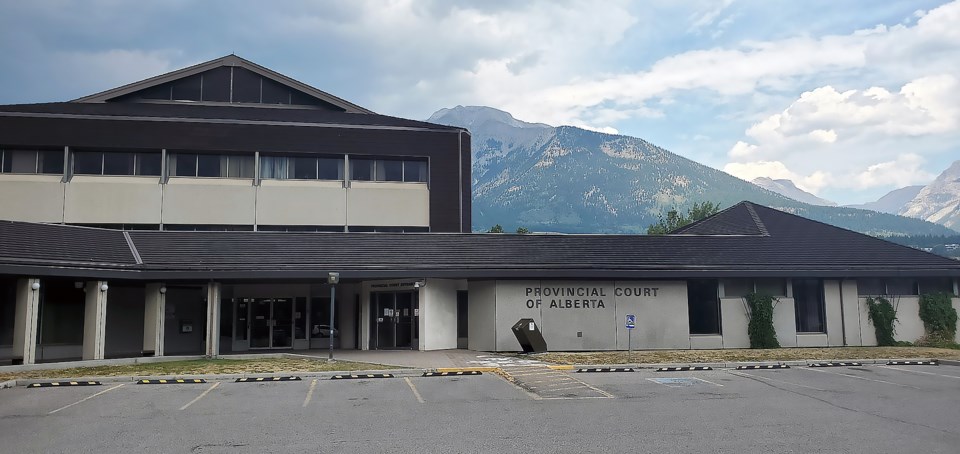The man who stabbed and brutally murdered Banff cabbie Lucie Turmel in 1990 has been granted day parole for six months.
The Parole Board of Canada’s April 4 decision indicated the 1990 murder was “exceedingly callous and violent,” but said they believe Ryan Jason Love, now 54, is a low-moderate risk of violent re-offending and the release plan has sufficient structure and supervision to manage this risk in the community.
“The board concludes you will not present an undue risk to society on a day parole, and your release will facilitate your reintegration as a law-abiding citizen,” it states in its decision, which was released Tuesday (May 7).
“Having successfully been managed at minimum security, and having previously been successfully managed for protracted periods of time in the community, the board concludes a day parole is a reasonable next step in a gradual and structured return to the community.”
Love was charged and ultimately convicted after robbing 23-year-old Turmel for her meagre earnings of $130, stabbing her 17 times and stealing her taxi in May 1990. The taxi was later located a few kilometres away from the crime scene.
At the time, Love worked as a housekeeper at the Banff Springs Hotel and was 18 years old. He had moved to Banff with friends after dropping out of high school.
The case went unsolved for more than two years until a tip to police led to a second-degree murder charge against Love. In June 1994, he was sentenced to life in prison, with parole eligibility set at 20 years.
The parole board said Love explained to his psychologist that he committed the murder because he needed money to travel to a family reunion, felt like a failure because he didn't have enough money, and so decided to rob a cab.
“You admit you consumed alcohol in order to build the confidence necessary to commit the crime,” the board said.
“You deny intending to kill the cab driver or running after her to stab her. You admit you did become angry at her when she resisted and grabbed your arm.”
Love was initially released on day patrol in 2011 and transitioned to full parole the following year.
However, in May 2020, he got involved in a relationship with a new girlfriend and he admitted to pushing her on one occasion, hurting her knee after she fell awkwardly.
In early 2021, he was charged after smashing her car windows with a baseball bat after they broke up.
While his parole was initially suspended, Love returned to the community in March 2022 with a reprimand and additional special parole conditions.
Then, in August 2022 during a police traffic stop, Love was found in the company of a drunk woman, at night, in an area of town known “for crime, substance abuse, and the sex trade”.
The board said he lied to police and his parole supervisor about the circumstances.
“It was discovered you had been associating with a negative peer,” the board stated.
“Your release was revoked in August 2022 and you have remained incarcerated ever since.”
In last month’s decision to grant Love day parole for six months, the board noted he had a very limited criminal history and was on conditional release for lengthy periods of time between 2011 and 2022.
After he was sent back to prison in August 2022, the board said Love had been at a minimum-security facility “without significant issues.”
The board said there are no recent issues of institutional substance abuse and he has successfully completed counselling and other recommended core programs.
“You have maintained employment, you have a good working relationship with your parole supervisor, and you have had no charges or security incidents,” states the board in its decision.
The board did, however, deny Love’s request for full parole, noting it does not offer the same level of structure and supervision as a day parole.
Indicating he has a history of “being less than forthcoming” with his parole supervisor, the board said he will benefit from additional observation that comes with day parole and residence in a community residential facility.
As part of the many conditions attached to his day parole, Love is forbidden from making any contact with Turmel’s family, who deserve to feel safe from him.
The victim impact statements at the time of sentencing spoke to the devastating impact of Love’s offence on Turmel’s family, including her spouse, her brothers, and her mother.
“The judge also noted the impact upon other relatives, friends, as well as the small resort community where the offence took place,” states the board.
Love is also forbidden from having any contact with his ex-girlfriend, particularly because his continued involvement with her could be a trigger for “emotional dysregulation” and an increased risk for re-offending.
In addition, Love must also immediately report all sexual and non-sexual relationships and friendships with women, as well as changes to the status of the relationships and friendships, to his parole supervisor.
With his history of drug and alcohol abuse, he is banned from buying and using drugs and alcohol, and he must take part in one-to-one counselling with a mental health professional to address emotions management, problem-solving skills and relationship issues.
“These special conditions are directly related to your pattern of offending or past breaches and are imposed for the duration of your day parole given your violent offence, several incidents of dishonesty during your last release, and the need for additional supports and structure during your initial return to the community,” states the board.




